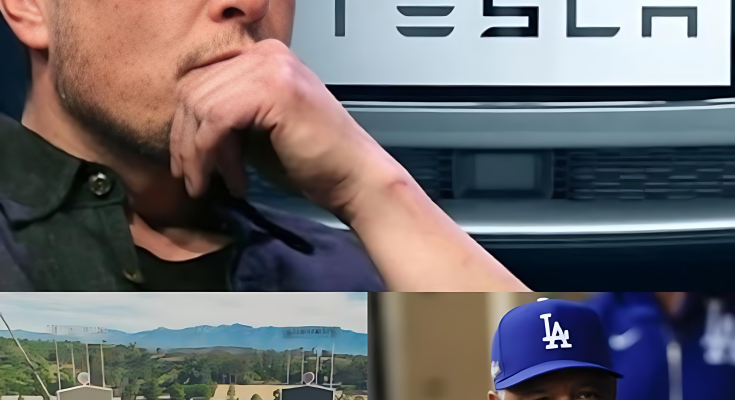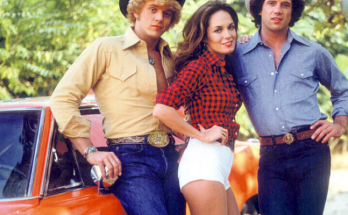
In a bold and unexpected move that’s shaking up both the sports and business worlds, the Los Angeles Dodgers have reportedly rejected a major advertising proposal from Elon Musk’s Tesla, declining to display Tesla branding at Dodger Stadium despite a multi-million-dollar pitch. According to sources close to the organization, the team’s reasoning has stunned fans — and left even Musk’s most devoted supporters speechless.
The Dodgers, one of Major League Baseball’s most iconic franchises, confirmed the decision in a brief but pointed statement on Wednesday morning:
“While we respect the innovation Tesla has brought to the world of technology and transportation, the Dodgers remain committed to partnerships that align with our core values — including sustainability, community, and responsible leadership.”
The statement, though diplomatic, carried serious weight — particularly considering Tesla’s frequent criticism for environmental, labor, and public relations controversies in recent years.
What Happened?
Sources with direct knowledge of the proposal told reporters that Tesla had submitted an offer exceeding $8 million per year to become a featured sponsor at Dodger Stadium. The deal would have included prominent signage, digital displays, and even branded EV charging stations in the stadium’s parking lot.
However, the Dodgers quietly declined the proposal during a recent internal review, citing “concerns about alignment with organizational values and public perception.”
The move is even more shocking given the franchise’s proximity to Silicon Valley-style innovation and Tesla’s cultural dominance in California. But according to insiders, it came down to more than image — it was a message.

“This Is About Integrity”
An anonymous executive within the Dodgers organization told reporters:
“We want to be more than just a successful ballclub — we want to lead by example. Whether it’s our sustainability programs, our DEI efforts, or how we partner with brands, we’re making intentional choices. We didn’t feel comfortable giving that much visibility to a company that doesn’t fully reflect our vision of ethical progress.”
Though the executive did not directly reference Elon Musk, the subtext was clear: the Dodgers are distancing themselves from the increasingly controversial tech mogul, whose public behavior — from inflammatory social media posts to labor disputes and erratic decision-making — has alienated both allies and consumers.

Social Media Explodes
News of the rejection sparked immediate reactions across social media, with fans, media figures, and tech-watchers flooding Twitter/X with opinions.
“Dodgers just ghosted Elon Musk in front of the whole world,” one user posted.
“Respect to the Dodgers. Money isn’t everything — values matter too,” wrote another.
On the flip side, Musk loyalists were quick to fire back, claiming the team had made a “woke” decision that would hurt its bottom line. However, many pointed out that the Dodgers remain one of the most valuable franchises in sports and are unlikely to suffer from turning down one sponsor.
Tesla has not issued an official response, and Elon Musk himself has remained uncharacteristically silent — a stark contrast to his usual quick-fire tweets in the face of public disputes.

A Stand for Sustainability?
What makes the decision particularly fascinating is that the Dodgers have long branded themselves as leaders in environmental responsibility. The stadium already features solar panels, low-waste concessions, and has been exploring EV-friendly infrastructure for years.
So why turn down Tesla?
A source familiar with the team’s sustainability strategy hinted that the issue wasn’t electric vehicles — it was accountability.
“It’s not just about the product. It’s about how that product is made, who is making it, and the values behind the company. We want to work with brands that are not only innovative but also responsible — from labor practices to how they communicate with the public.”
In recent years, Tesla has faced lawsuits over racial discrimination, criticism over factory conditions, and backlash over Musk’s erratic public persona. While the brand remains a symbol of innovation, its reputation has undeniably become more complicated.

What’s Next?
The Dodgers’ decision may mark a turning point in how sports franchises engage with tech giants and high-profile billionaires. With public scrutiny at an all-time high, more teams may choose to prioritize ethics and brand alignment over raw financial gain.
Marketing analysts say the rejection also reflects a broader shift in professional sports — one in which athletes and organizations are increasingly expected to stand for something beyond wins and profits.
As one sportswriter put it:
“The Dodgers just told the richest man in the world: your money’s no good here — not if it compromises who we are.”



